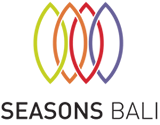Is drug and alcohol rehab necessary or can I use self-treatment?
One of the most significant steps in recovery is admitting that you have a problem. Many family members and friends of addicts are keen to get their loved ones into drug and alcohol rehab. But, unless the person understands that they have a problem, there can be issues getting them into treatment.
When someone admits that they have a problem, that is not the end of the story either. Just because you acknowledge that you have a problem doesn’t mean that you automatically check yourself into rehab. Checking into rehab implies responsibility. It means that you have to follow through on your promises to your loved ones. It means that there will be a lot of barriers to using. Hence, many addicts – after admitting they have an issue, still decide to go it alone.
Going it alone means that you don’t have to face the embarrassment of your addiction. It means that you have the freedom to relapse at any time, and you don’t have to explain yourself to anyone. Often going it alone for an addict means that they are not ready to quit. They understand that they have a problem, but they are not prepared to close the door just yet.
So, even though the first step on the road to recovery is admitting you have a problem – it doesn’t automatically flow on from there. Deciding to enter drug and alcohol rehab is a courageous step since it limits your options. It means that to some degree, you are no longer identifying with your addiction as part of yourself – You are beginning to see it as an obstacle to life.
Many people relapse after going through treatment. Statistically, the longer one spends in treatment, the more likely one is to remain in recovery— but even long term participants relapse. Still, for someone with a problematic addiction, self-treating is much more likely to result in a relapse. In other words, self-treatment doesn’t tend to work.
Many things could lead a person to relapse. There is a strong connection between dependent alcohol or other drug use and personal challenges, problems at work, ongoing emotional and psychological issues, and social or economic problems such as financial hardship, rejection by social support networks and challenges in personal relationships.
Much like dependent drug behaviours themselves, the process of recovery – and the reasons for relapse – can be highly personal. A relapse is not a sign that the person is ‘weak’ or a ‘failure’ – it is merely a continuation of old coping patterns that need to be replaced with new ones. (adf.org)
Addiction is a pattern, not a drug
To the outside eye, the process of drug and alcohol addiction treatment is to starve you of the substance until your body is free from it and then like magic you are cured. If only it were that simple.
It is complicated because the drug is merely the vehicle on which the underlying pattern of addiction travels. While the addiction pattern is still there, even if the addict doesn’t relapse into their particular drug, they will always manifest the pattern in other ways.
Russell Brand often talks about his approach to yoga which he later realised to be extreme. This is an example of transferring one’s addictive behaviour to another vehicle. You might think it is a good thing, but even too much yoga, when feeding an addictive habit, is not necessarily good.
Such behaviour continues to deepen the underlying pattern. The result is that, although you spend longer and longer away from alcohol or drugs, your desire to use doesn’t ever seem to leave you.
This is often the case with addicts. Even addicts who have been in recovery for a long time, if you look carefully at their lives, they are manifesting their addictions in other ways. Typical vehicles include obsessions with particular people or subjects; other substances such as cigarettes or coffee; excessive emotions such as pride or anger; food addiction; sex addiction or, extreme engagement in activities such as exercise or sports.
While the underlying pattern is still there, it will always need a vehicle to play itself out. Someone could be in recovery for fifty years and, although they have never touched the substance, they still might not be free of the addiction.
Trauma and abuse. Early exposure to significant adverse experience can contribute to the development of substance use disorders by overwhelming an individual’s coping ability, perhaps by sensitizing brain pathways of alarm/distress, or by adding to the burden of stress. – Psychology Today

How to treat the pattern instead of the drug
This is the reason why self-treatment often doesn’t work. If it does, it usually means a high rate of relapse. Self-treatment can be successful for mild addictions, but for strong dependencies, it rarely works in the long term because it does little to address the underlying pattern in most cases.
Self-help methods are only effective when the participant can approach treatment logically, articulate the problem, dedicate time and mental energy to achieving the desired outcome and share the results with others.
The obsession and compulsion of addiction and alcoholism prevent the necessary qualifications for effective self-help, making it impossible to use this method for addiction treatment. (source)
A holistic treatment program is essential as it helps addicts address the underlying addictive pattern. Such patterns are often the result of some trauma in life. When the approach is to address the underlying pattern, then the results are more successful. Holistic drug and alcohol treatment sees the whole picture and understands that drug addiction is the result of a systematic habit which is the result of some other life circumstances. Only when a person is free from the underlying pattern will they be truly liberated from their addiction. So a supervised holistic treatment program is necessary as a foundation. Long term though, many addiction habits run deep into our being.
Addiction is commonly treated as a permanent disease. This approach doesn’t mean that we have to be stuck with cravings forever. It is dealt with in this way because removing our underling patterns is a long term project and we have to be prepared to work on these things for many years after we leave a treatment centre.
One of the common mistakes of addicts is that they leave treatment and get their substance issue under control, but they continue to use in other ways – while continuously hurting people in their lives. They do not understand that this is the addiction that is still controlling them because technically, they no longer use the drug for which they first entered into treatment.
Addiction hurts you, and it hurts the people in your life. You may have escaped using the drug, but is your addiction still using you? If people you love are getting hurt in your life because of your actions, then the answer is probably yes.
So post-treatment an addict must continue the work. Some simplify this process by saying that it means attending meetings and not using. But it is much more than this.
Get ahead of the curve by attending rehab again
One thing addicts seldom consider is going back into treatment before they relapse. Treatment can be expensive, so this is not always an option. If someone isn’t using, they feel that they ‘don’t need it’, and it might, therefore, be a waste of money. But, if you understand that you are treating the pattern rather than the drug, then you know that there is no limit to the benefits you can get from attending rehab multiple times even if you aren’t using.

Continue your counselling
A good counsellor is someone who can draw out patterns and trace them back to their origins. Many counselling success stories are told over years rather than months. Real-world counselling with a skilled professional is one of the most significant ways that you can trace an addictive pattern back to its roots and deal with the trauma that caused it. Counselling can be insightful, but many breakthroughs come way down the road, sometimes hundreds of sessions deep. One good suggestion is to see counselling as a lifetime endeavour rather than something temporary.
Develop self-awareness
An addict can have a lot of pride in their recovery. This attitude is sometimes a sign that the underlying pattern is still going strong. If you play out your addiction in other ways that hurt people in your life – similar to when you were on drugs or alcohol, then you are not really in recovery. Developing self-awareness can help you unmask these patterns in your life and realise them for what they are – your old addictions continuing to haunt you.
Meditation is an excellent way to develop this. So is slowing down, being incredibly honest with yourself and keeping and reading a regular journal. Another way is to encourage the people in your life to be incredibly honest with you and let them know it is safe for them to express what they see in you. You have to follow through and not judge this. Family counselling sessions can also be a powerful way of facilitating this.
The Bottom Line
When it comes to drug and alcohol addiction treatment, there are a few things to keep in mind –
- Supervised Holistic treatment is an essential foundation
- Self-treatment rarely works
- Realise that you are treating a pattern not a drug
- Don’t be afraid to go back to rehab even if you are not using
- Stay vigilant for the pattern manifesting in other ways in your life
- Understand that it is a long term project
Transformation Starts Here
Taking that first step towards recovery is one of the most powerful things you can do. If you or a family member need help and you want to get the best treatment possible, get in touch with us now. With over twenty years of helping people to find peace in recovery, we are South East Asia’s Leading Addiction Treatment Centre.





